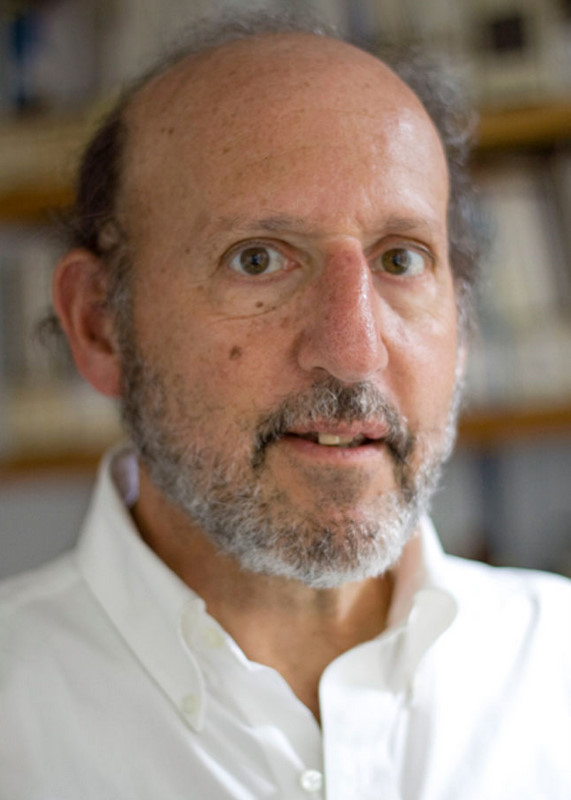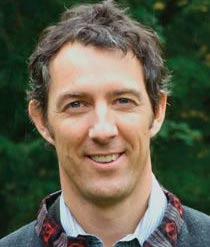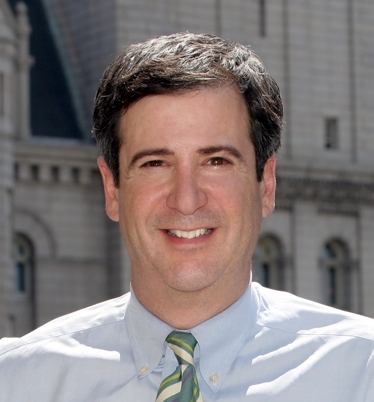We welcome your questions, suggestions, constructive criticisms. Please email us at info@carbontax.org. If you’re a journalist on deadline, call CTC director Charles Komanoff at 212-260-5237. (Otherwise, please stick to email, thanks.)
About us …
The Carbon Tax Center (“CTC”) was launched in January 2007 to give voice to Americans who believe that taxing emissions of carbon dioxide — along with commensurate taxes on methane and other greenhouse gases — is imperative to reduce global warming. Founders Charles Komanoff and Daniel Rosenblum brought to CTC a combined six decades of experience in economics, law, public policy and social change. Dan has moved on but Charles remains as CTC director.
Much of the content on our Web site, along with many timely and topical blog posts, was contributed by James Handley, a chemical engineer and attorney who previously worked for private industry and for U.S. EPA. James served as our senior policy analyst from 2012 to early 2016 and prior to that was a stalwart CTC volunteer.
To donate to the Carbon Tax Center
CTC’s work depends on financial support from individuals like you. Your contribution, in any amount, makes our work possible. Moreover, by broadening our base, your contribution makes us more attractive to philanthropic institutions that are potential sources of major support.
The IRS granted tax-exempt status in August 2014. All contributions to the Carbon Tax Center are therefore tax-deductible. You may contribute by mail or on-line. Here’s how:
- To make your tax-deductible contribution via mail, write a check or money order to Carbon Tax Center and mail it to Carbon Tax Center, PO Box 3572, Church Street Station, New York, NY 10008.
- To make your tax-deductible contribution on-line, click here. Or click on the DONATE NOW button at the top of this site’s Home Page, above the melting iceberg, on the right-hand side of the blue strip. Either way you’ll be directed to a form that will intake your donation in just a minute or two.
Thank you for your generosity and support.
CTC’s Mission
The Carbon Tax Center stands at the front lines of the struggle for a sustainable climate and a habitable Earth. Our mission: to generate support to enact a transparent and equitable U.S. carbon pollution tax as quickly as possible — one that rises briskly enough to catalyze virtual elimination of U.S. fossil fuel use within several decades and provides a template and impetus for other nations to follow suit.
Our mission arises from three fundamental attributes of carbon taxes:
- Carbon taxes are powerful: Adoption and global harmonization of national carbon taxes is central to spurring and expanding clean energy to rapidly replace coal, oil and gas whose combustion drives global warming. Indeed, carbon taxing is an essential policy tool for the U.S., China and 190 other nations to fulfill and surpass the “Intended Nationally Determined Contributions” (INDC’s) to which they committed at the UN Paris Climate Summit last December.
- Carbon taxes are essential: Alternative approaches — subsidizing clean energy, de-subsidizing fossil fuels, regulating coal-fired power plants, enacting usage-efficiency standards — while laudable and helpful, cannot drive down emissions at nearly the required pace and extent . . . unless they are bolstered by carbon taxes that incentivize the millions of short- and long-term decisions and investments that can move the world’s economies to an all-efficiency and renewable platform.
- Carbon taxes are foundational: The “polluter pays” principle inherent in carbon taxing is not only fundamentally just, it is a foundational element of environmental ethics. Carbon taxing also complements the divestment movement by weakening fossil fuel interests and reducing their sway in Congress. Yet carbon taxes, unlike most competing climate policy instruments, can also appeal to the political center and even the right.
Our commitment to a carbon tax is further rooted in the political economy of the U.S. and world energy systems, as captured in this passage we published in early 2014:
The U.S. energy system is so diverse, our economic system so decentralized, and our species so varied and innovating that no subsidies regime, no matter how enlightened, and no system of rules and regulations, no matter how well-intentioned, can elicit the billions of carbon-reducing decisions and behaviors that a swift full-scale transition from carbon fuels requires. At the same time, nearly all of those decisions and behaviors share a common, crucial element: they are affected, and even shaped, by the relative prices of available or emerging energy sources, systems and choices. Yet those decisions cannot bend fully toward decarbonizing our economic system until the underlying prices reflect more of the climate damage that carbon fuels impose on our environment and society. These three facts — the inability of carbon subsidies or rules and regulations to make a big enough dent in carbon emissions, the centrality of price in energy-related decisions that determine the magnitude of those emissions, and the chronic “externalization” of climate damage from the price of energy — are what have led CTC . . . to advocate carbon taxing as the central element of U.S. climate policy.
That’s from our Jan. 31, 2014 report, “Design of Economic Instruments for Reducing U.S. Carbon Emissions,” which we submitted to the U.S. Senate Finance Committee pursuant to Committee Staff’s solicitation for comments on proposed energy tax reform measures. (See page 4; our full 22-page comment document may be downloaded as a pdf.)
Our Board of Directors
CTC has five directors, with Alex Matthiessen serving as board chair. Following are their thumbnail biographies (listed alphabetically):
Nancy E. Anderson, Ph.D. is executive director of the Sallan Foundation, an urban environmental non-profit corporation that advances knowledge and convenes events concerning greener cities, climate change, high-performance buildings and urban energy policy. Earlier, as senior environmental advisor to the NYC Comptroller, Nancy successfully counseled the Comptroller to stop the sale of the City’s water supply, created the Alliance for Clean Water Action, and formulated the scope of work and acted as liaison to the National Academy of Sciences’ landmark NYC watershed study. Nancy’s earlier positions in City government included director of environmental development, director of regulatory review, senior policy analyst in the Comptroller’s office, where she authored the Community Hazardous Materials Right-to-Know Law, and in the Sanitation Department’s Environmental Enforcement Unit. Nancy received her Ph.D. in Sociology from New York University in 1980.
Ernst R. (“Hasty”) Habicht, Jr., Ph.D. [in memoriam, 1939-2020] was an energy policy consultant to investment banks, utilities, large energy users, not-for-profit groups and governmental agencies, specializing in the interaction of economic incentives and emerging technologies. Hasty was founder and the first director of the Environmental Defense Fund’s energy program, where he concentrated EDF’s resources on changing electricity pricing policies to reflect the level of system demand. This led to Wisconsin’s adoption of time-of-day pricing in the 1970s and became a foundation of EDF’s efforts to improve environmental outcomes by unifying economic and scientific analysis and applying marginal-cost pricing principles to natural gas, water resources and transportation. Hasty published papers and articles on energy technology and regulation in policy journals and national media and served as an expert witness before numerous regulatory authorities. Hasty earned degrees in chemistry from Harvard College and Stanford University and held postdoctoral and academic positions at the University of California at San Diego.
Charles Komanoff co-founded the Carbon Tax Center and serves as CTC’s director. Charles, a math-and-economics honors graduate of Harvard, has built a distinctive career as energy-policy analyst, transport economist and environmental activist, as well as a visionary advocate of fresh ideas. In addition to directing the Carbon Tax Center he advises the Move NY Campaign to restructure road tolling and transportation finance in New York City. In the 1980s and 1990s Charles helped jump-start the livable streets movement in NYC and nationally as “re-founder” and president of the bicycling-advocacy group Transportation Alternatives and leader of the pedestrian-rights group Right Of Way. Earlier in his career, Charles developed a rigorous narrative documenting the faltering economics of the U.S. nuclear power industry, and as an expert witness for state government agencies helped shield electricity ratepayers from nuclear-related utility cost overruns. His published works include books, long-form journalism in the New York Review of Books, New York Magazine and Orion, and op-eds in the New York Times and other papers.
Alex Matthiessen, CTC’s board chair, is the principal of Blue Marble Group, an eco-political consultancy from which he manages the Move NY Campaign to reform traffic tolling in New York City and secure new financing for the city and region’s transportation network. Alex also advises for-profit companies in gaining approvals for green projects as well as the Robert Rauschenberg Foundation on climate initiatives. From 2000-2010, he was CEO and president of Riverkeeper, the organization at the forefront of the decades-long campaign to restore the Hudson River and protect the NYC watershed. Previously, Alex served as a special assistant in the Office of U.S. Interior Secretary Bruce Babbitt and was grassroots program director for the Rainforest Action Network. He also serves on the board of Catskill Mountainkeeper. Alex holds a Masters of Public Administration from the John F. Kennedy School of Government at Harvard University, and a BA in Biology and Environmental Studies from the University of California at Santa Cruz.

Ted Loewenthal
Ted Loewenthal, MD, recently retired from a rewarding 35-year career as a physician in clinical practice. Recognized as a leading gastroenterologist in Connecticut, he was affiliated with Hartford Hospital where he oversaw gastrointestinal endoscopy and related quality of care issues. Dr. Loewenthal is the lead environmental trustee for the Common Sense Fund. His energy and passion are directed to addressing global warming. He recently joined the board of Inside Climate News, which won the 2013 Pulitzer Prize in National Reporting for its incisive coverage of climate change, energy and the environment. A graduate from Harvard in chemistry, Ted earned his MD at Tufts University School of Medicine.
Robert J. Shapiro, Ph.D. is co-founder and chairman of Sonecon, LLC, an advisory firm that analyzes changing economic and political conditions in the United States and around the world and their relationship to government policies. Dr. Shapiro is also a senior fellow of the Georgetown University School of Business, advisor to the International Monetary Fund, director of the Globalization Center at NDN, chairman of the U.S. Climate Task Force and co-chair of America Task Force Argentina. From 1997 to 2001, Dr. Shapiro was U.S. Under Secretary of Commerce for Economic Affairs. Earlier he co-founded the Progressive Policy Institute and also served as principal economic advisor to Bill Clinton in his 1991-1992 presidential campaign and senior economic advisor to Al Gore and John Kerry in their presidential campaigns. In 2008 and 2012, he advised the campaigns and transition of Barack Obama. Dr. Shapiro also was Legislative Director for Senator Daniel P. Moynihan and Associate Editor of U.S. News & World Report. He has been a Fellow of Harvard University, the Brookings Institution, and the National Bureau of Economic Research. Dr. Shapiro holds a Ph.D. and M.A. from Harvard, a M.Sc. from the London School of Economics, and an A.B. from the University of Chicago.
See also You and Us.





